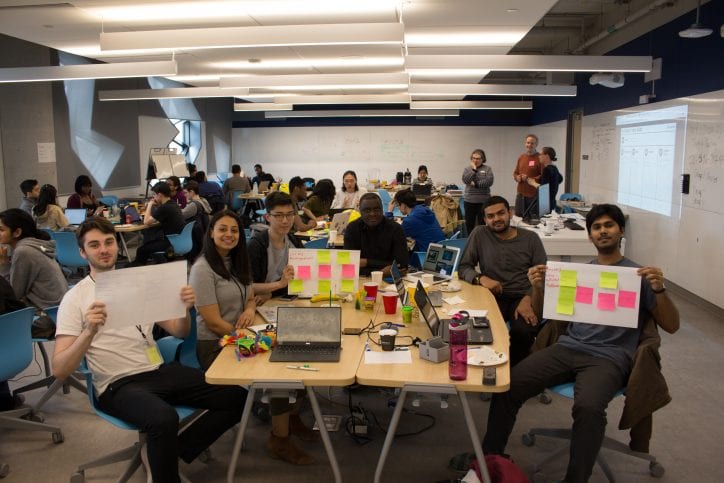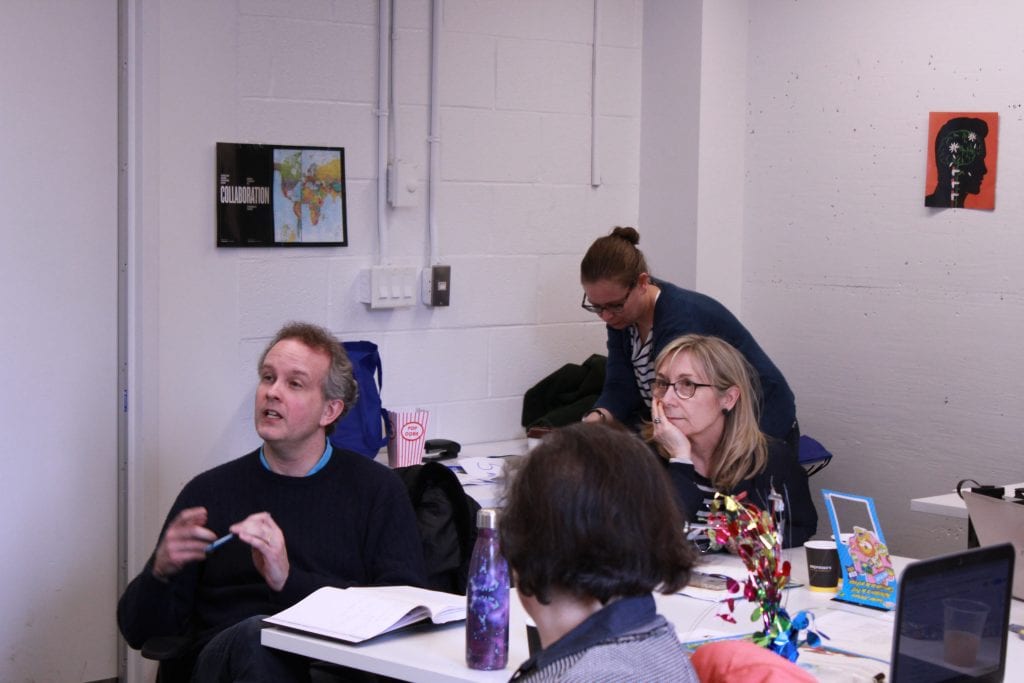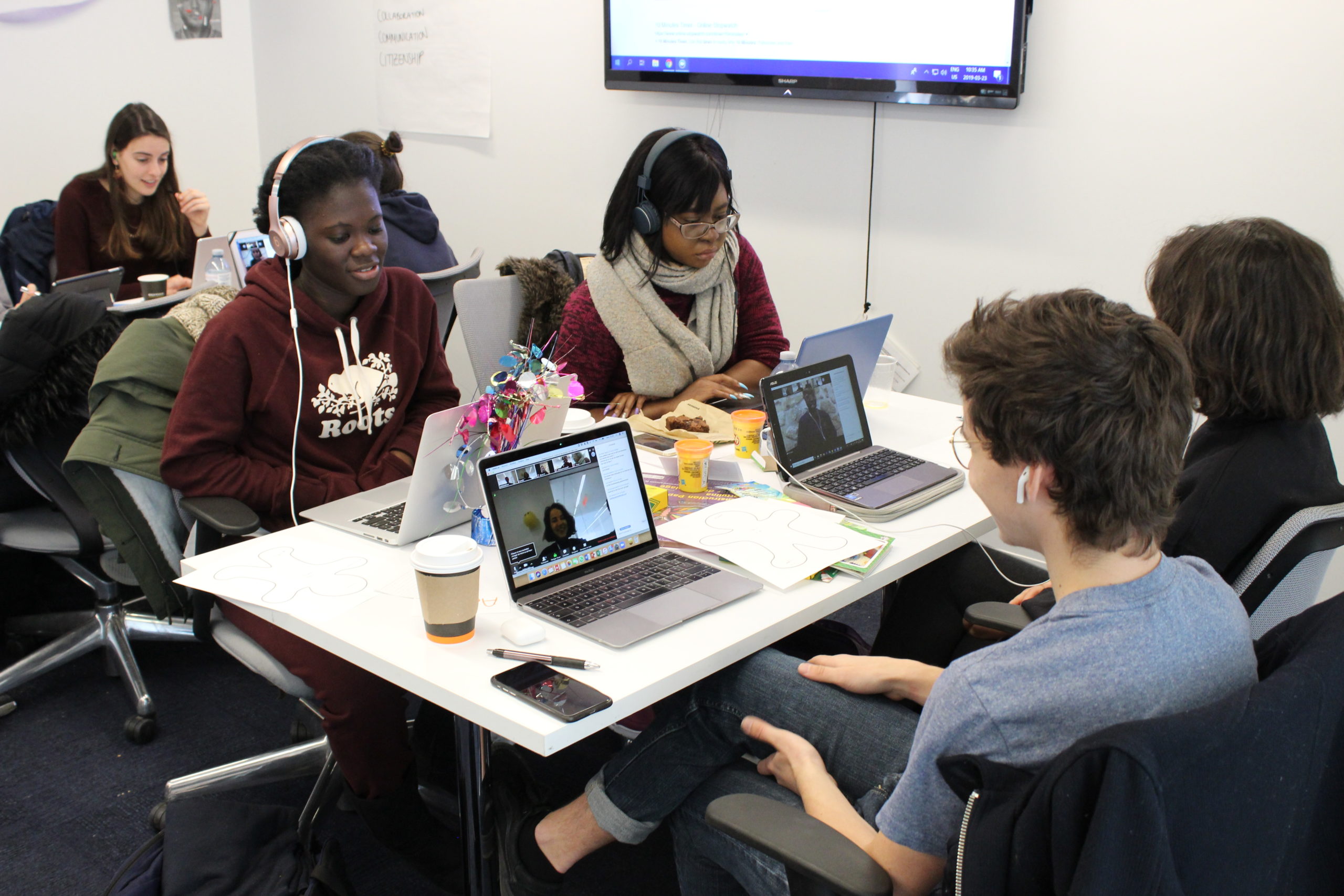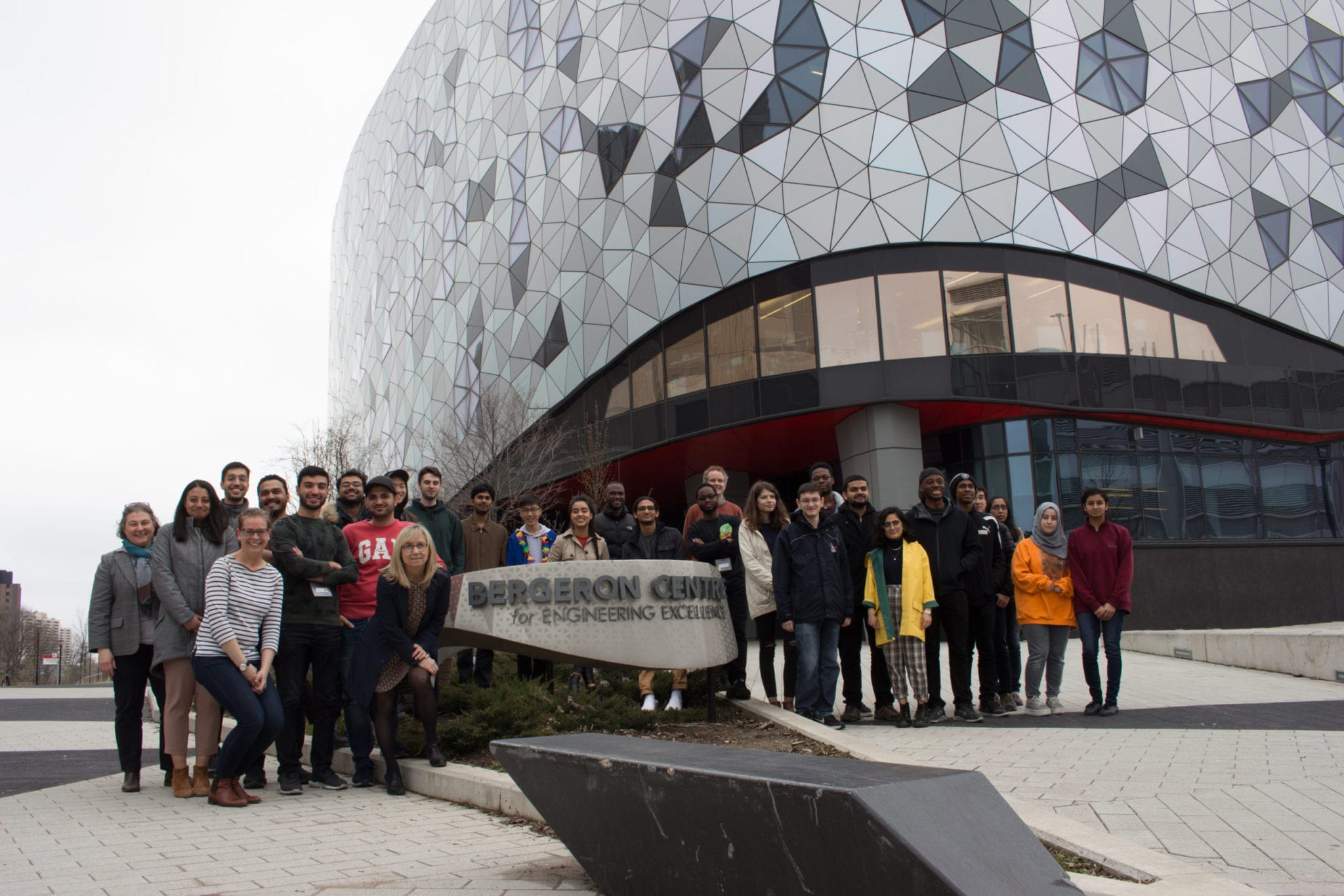In the 2018-2019 academic term, undergraduate students from York University’s Glendon campus and Lassonde School of Engineering designed and prototyped Open Educational Resources (OER). These OER activities aim to develop the following global competencies amongst students: collaboration; innovation, creativity and entrepreneurship; learning to learn/self-awareness and self-direction; communication; critical thinking and problem-solving; global citizenship and sustainability.
Thematically, these OERs were designed around the concepts of interculturality, plurilingualism, and information literacy and academic competencies – skills that are pertinent for success in post-secondary education and careers of the 21st century.
These OER activities were designed by students for students and educators both. They are free to view and use. We invite you to browse through the activities and to reuse, retain, revise, remix and redistribute them, for your own needs, and share them widely.

Glendon and Lassonde students at the cross-faculty Creathon in May 2019.
I. INTERCULTURALITY
The first set of OER activities spoke to the theme of interculturality. The activities were designed to develop the following intercultural competencies amongst students. To learn more about the framework used for interculturality, (based on Deardorff 2006), please click here.
i. Attitudes
- Respect (valuing other cultures, cultural diversity)
- Openness (to intercultural learning and to people from other cultures, withholding judgment)
- Curiosity and discovery (tolerating ambiguity and uncertainty)
ii. Knowledge and Comprehension
- Cultural self-awareness
- Deep understanding and knowledge of culture (including contexts, role and impact of culture & others’ worldviews)
- Culture-specific information
- Sociolinguistic awareness
iii. Skills
- Listening
- Observing
- Interpreting
- Analyzing
- Evaluating
- Relating
Check out OER activities on interculturality here.

Professor Franz Newland (left) and Professor Dominique Scheffel-Dunand (right) at the transnational Ideathon in March 2019.
II. PLURILINGUALISM
The second set of OER activities spoke to the theme of plurilingualism. The activities were designed to develop the following plurilingual competencies amongst students. To learn more about the framework used for plurilingualism, (based on the 2018 Common European Framework of Reference for Languages: Learning, Teaching, Assessment), please click here.
i. Switch from One Language to Another
ii. Express Oneself in One Language and Understand the Other
iii. Call Upon the Knowledge of a Number of Languages to Make Sense of a Text
iv. Recognise Words from a Common International Store in a New Guise
v. Mediate between Individuals with No Common Language
vi. Bring One’s Whole linguistic Equipment into Play
vii. Experiment with Alternative Forms of Expression in Different Languages and Dialects
viii. Exploit Paralinguistics (mime, gesture, facial expression, etc.)
ix. Simplify One’s Use of Language
x. Exploit Language as a Tool for Mediation to:
- Create pluricultural space for communication and learning
- Reducing affective blocks/tensions
- Building bridges toward the new, the other
- Co-constructing new meaning
- Passing on information (and simplifying, elaborating, illustrating or adapting)
- Acting as intermediary
Check out OER activities on plurilingualism here.

Glendon students working on OER activities.
III. INFORMATION LITERACY AND ACADEMIC COMPETENCIES
The third set of OER activities spoke to the theme of information literacy and academic competencies. The activities were designed to develop the following information literacy and academic competencies amongst students. To learn more about the framework used for information literacy and academic competencies, (based on the Association of College and Research Libraries Framework for Information Literacy in Higher Education) please click here.
i) Authority Is Constructed and Contextual
- Motivate themselves to find authoritative sources, recognizing that authority may be conferred or manifested in unexpected ways
- Develop awareness of the importance of assessing content with a skeptical stance and with a self-awareness of their own biases and worldview
- Question traditional notions of granting authority and recognize the value of diverse ideas and worldviews
ii. Information Creation as a Process
- Accept that the creation of information may begin initially through communicating in a range of formats or modes
- Accept the ambiguity surrounding the potential value of information creation expressed in emerging formats or modes
iii. Information has Value
- Respect the original ideas of others
- See themselves as contributors to the information marketplace rather than only consumers of it
- Are inclined to examine their own information privilege.
iv. Research as Inquiry
- Seek multiple perspectives during information gathering and assessment
- Follow ethical and legal guidelines in gathering and using information
- Demonstrate intellectual humility (i.e., recognize their own intellectual or experiential limitations)
v. Scholarship as Conversation
- Recognize they are often entering into an ongoing scholarly conversation and not a finished conversation
- Suspend judgment on the value of a particular piece of scholarship until the larger context for the scholarly conversation is better understood
- Recognize that systems privilege authorities and that not having a fluency in the language and process of a discipline disempowers their ability to participate and engage
vi. Searching as Strategic Exploration
- Exhibit mental flexibility and creativity
- Realize that information sources vary greatly in content and format and have varying relevance and value, depending on the needs and nature of the search
Check out OER activities on information literacy and academic competencies here.

Glendon and Lassonde students at the cross-faculty Creathon in May 2019.
Several of the student-created OER included above were further developed by Glendon and Lassonde students into working applications. The two included below are Minimum Viable Products (MVPs), and the third, from the module on interculturality, is still in progress and will be posted here in December 2019.
1) Academic Slang Dictionary (from the “Slang Activity” in the module on plurilingualism)
2) Venn Diagram (from the activity “Meet Me in the Middle” found in the module on information literacy and academic competencies)

